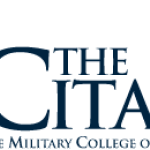- Branża: Education
- Number of terms: 941
- Number of blossaries: 0
- Company Profile:
A struggle between opposing forces in a story or play, usually resolved by the end of the work. The conflict may occur within a character as well as between characters.
Industry:Literature
The associations called up by a word that goes beyond its dictionary meaning. Poets, especially, tend to use words rich in connotation.
Industry:Literature
A customary feature of a literary work, such as the use of a chorus in Greek tragedy, the inclusion of an explicit moral in a fable, or the use of a particular rhyme scheme in a villanelle. Literary conventions are defining features of particular literary genres, such as novel, short story, ballad, sonnet, and play.
Industry:Literature
A figure of speech in which a writer or speaker says less than what he or she means; the opposite of exaggeration. The last line of Frost's "Birches" illustrates this literary device: One could do worse than be a swinger of birches.
Industry:Literature
The implied attitude of a writer toward the subject and characters of a work.
Industry:Literature
The grammatical order of words in a sentence or line of verse or dialogue. The organization of words and phrases and clauses in sentences of prose, verse, and dialogue
Industry:Literature
The idea of a literary work abstracted from its details of language, character, and action, and cast in the form of a generalization."
Industry:Literature
A story that narrates strange happenings in a direct manner, without detailed descriptions of character.
Industry:Literature
The way an author chooses words, arranges them in sentences or in lines of dialogue or verse, and develops ideas and actions with description, imagery, and other literary techniques. See Connotation, Denotation, Diction, Figurative language, Image, Imagery, Irony, Metaphor, Narrator, Point of view, Syntax, and Tone.
Industry:Literature
